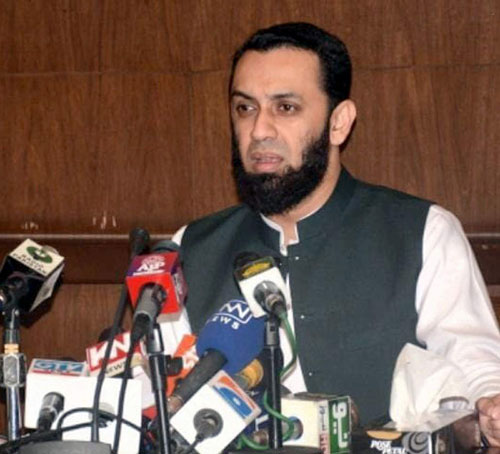In its bid to defend the passage of six amendment bills in the parliament, including one extending the fixed tenure of services chiefs up to five years and the other increasing number of judges in the apex and high courts, the government stood firm on the stance that the legislation was not carried out for a single person.
Federal Minister for Information Attaullah Tarar said that the tweaks were not introduced suddenly, as consultation was ongoing and Pakistan People’s Party also taken into confidence.
“The opposition was not ready to discuss the legislation,” he said, speaking to a news channel on Tuesday.
“Extending the tenure to five years will not affect the institution’s merit-based system,” said Tarar, adding that the government also addressed the uncertainty regarding the appointment of the army chief.
Meanwhile, speaking with journalists on Tuesday, the law minister also maintained that the number of SC judges was increased to 34 after much deliberation.
Whether the number of judges is 16, 20 or 28 judges, it is the Judicial Commission of Pakistan that will determine how many judges are required, said the minister.
“The Judicial Commission will decide how many judges it wants on the constitutional benches and on the registry benches,” he said, adding that the major demand for this reform came from the Supreme Court Bar Association and the High Court Bar Association.
All four registries remain empty for years, he said, adding that one must think about those coming to Islamabad from Panjgur, Khuzdar, Dera Ghazi Khan or Upper Kohistan.
“After the 26th constitutional amendment, it was necessary for the most senior judges to be in the committee for the constitutional benches. The judges who will be transferred to the constitutional benches can also do other work along with their usual tasks,” the law minister stated.
The chief justice, senior-most judges and senior-most judges in the constitutional benches will also be in the committee, he added. The minister also maintained that pending cases in IHC are increasing day by day.
Meanwhile, commenting on the constitutional tweaks related to the extension in the tenure of the services chiefs, Khawaja Asif said that the process of extension has continued since the Ayub Khan regime and that the government has only formalised it.
The defence minister said that the first-ever extension was given by then-premier Feroze Khan to then-commander-in-chief General Ayub Khan in 1957.
“Ayub, Zia-ul-Haq and [Pervez] Musharraf gave themselves about 20 years of extension, while [Ashfaq Parvez] Kayani and [Qamar Javed] Bajwa receivedfour years of extension from civilian governments,” said Asif.
The minister maintained that the government has strengthened the institution instead of individuals by amending the extension law, adding that the tenure of other institutions is also five years and the purpose of the tweak is to create harmony.
“The extension of tenure will be applicable to all the three institutions — Army, Air Force and Navy. A specific individual or institution has not been favoured,” said Asif. Rulers in the past, he added, gave extension to army chief to prolong their time in power.










